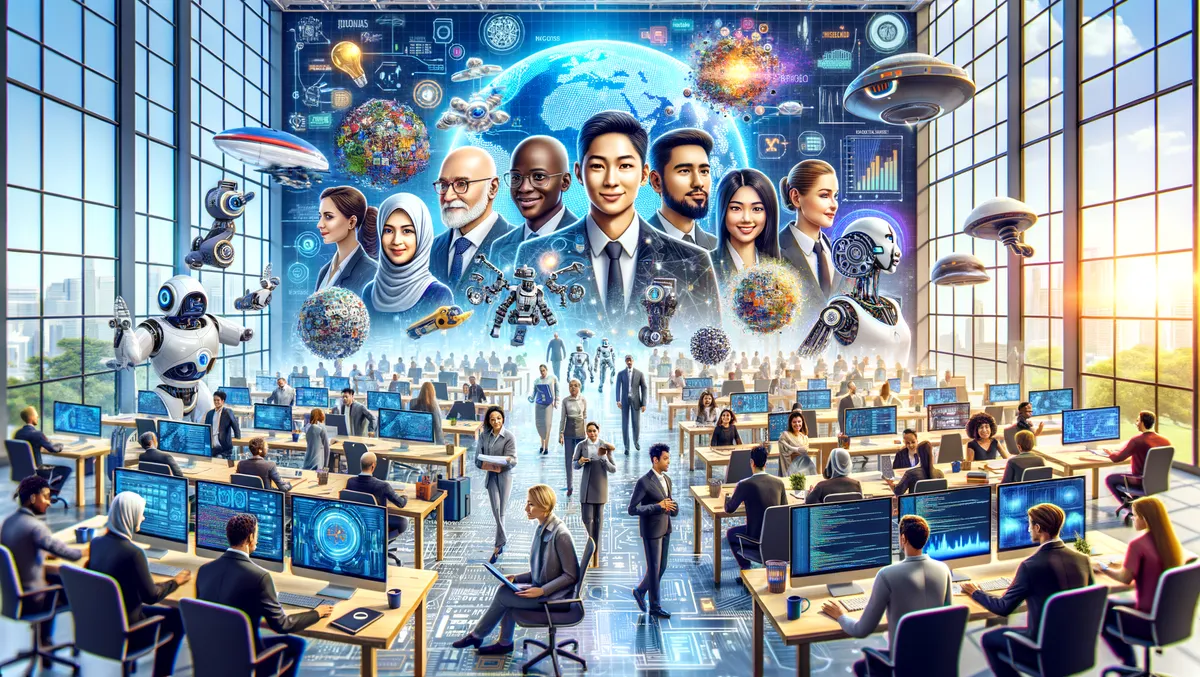
Singapore's plan to increase AI workforce & with updated national AI strategy
Singapore has announced an ambitious plan to triple its number of artificial intelligence (AI) practitioners to 15,000 over the next three to five years. The city-state also intends to establish an iconic site to foster the AI community. These form part of the recently launched National AI Strategy (NAIS) 2.0, Singapore's updated AI roadmap.
The AI Apprenticeship Programme, which has graduated 300 Singaporeans as of September, will be redesigned and expanded to nurture the talent pool. The government also plans collaborations with AI product development teams spread across diverse industries to provide real-world experiences for participants. Furthermore, to ensure a vibrant ecosystem, a specialised team will identify and engage world-leading AI creators, fostering their integration into the local scene.
Encouraging AI adoption across all enterprises and upskilling the workforce with specific AI training programmes will be a central focus. To meet the needs of specific sectors, targeted training will be guided by Industry Transformation Maps and Jobs Transformation Maps. Meanwhile a specific location, yet to be announced, will nurture a symbiotic environment between AI creators and users resulting in a dynamic knowledge community critical for innovation.
At the launch of the NAIS 2.0, Deputy Prime Minister Lawrence Wong stated that humanity is traversing uncharted territory with AI. "We will have machines with human-like cognitive abilities and the capacity for self-awareness and independent decision-making. This will fundamentally reshape humanity's way of life, with profound implications for societies," he said.
In consultation with over 300 local and international experts and organisations, the revised national strategy follows Singapore's first NAIS in 2019, which saw the country embark on national AI projects in sectors such as education, healthcare, logistics, security, and municipal services. The current approach under NAIS 2.0 shifts from flagship projects to a comprehensive systems approach, positioning AI not just as an opportunity but a necessity.
The new strategy identifies 15 actions across domains, aiming to develop peaks of excellence in AI. Sectors to benefit from this include manufacturing, financial services, transport, logistics, and biomedical sciences. The smart nation priority areas of healthcare, education, and manpower, trust and safety, and public service delivery will also be prioritised for AI integration.
In response to concerns about the impact of AI on jobs and livelihoods, Mr Wong assured that although roles may change, a jobless future is not predicted. The government is ready to invest heavily in adult education and training to reskill and upskill workers to harness AI effectively. This training will support a thriving domestic AI industry, currently boasting over 80 active researchers, 150 AI research teams, and 1,100 AI start-ups. The government will also work on improving high-performance computing power and access to data to enhance AI outcomes.
As part of managing the potentials and challenges of AI, Singapore's regulatory approach will balance encouraging innovation with enforcing necessary checks and safeguards. This includes updating the Model AI Governance Framework and AI Verify – an AI governance testing framework and software toolkit. Mr Wong clarified the country's regulatory vision, saying, "Singapore's approach is to find the balance between encouraging experimentation and innovation while putting in place the necessary guardrails."
The launch of NAIS 2.0 aligns with the opening of the inaugural Singapore Conference on AI (SCAI), bringing in more than 40 domestic and international experts to ponder over critical AI-related questions. Mr Wong believes the conference will be a crucial platform for nurturing innovative ideas and establishing fruitful collaborations, thereby guiding the national course to lead in AI innovation.
